Dell PowerEdge R820 review
Dell’s PowerEdge R820 is the first Xeon E5-4600 production server to market. We take a look at this compact four-socket server, which can be used to manage heavy duty databases, virtualisation, HPC and VDI hosting.
The PowerEdge R820 showcases Intel’s latest E5-4600 Xeons in a superbly built system packed with features. The modest dimensions will appeal to space constrained data centres looking a balanced combination of processing density, high memory capacity, low power consumption and value.

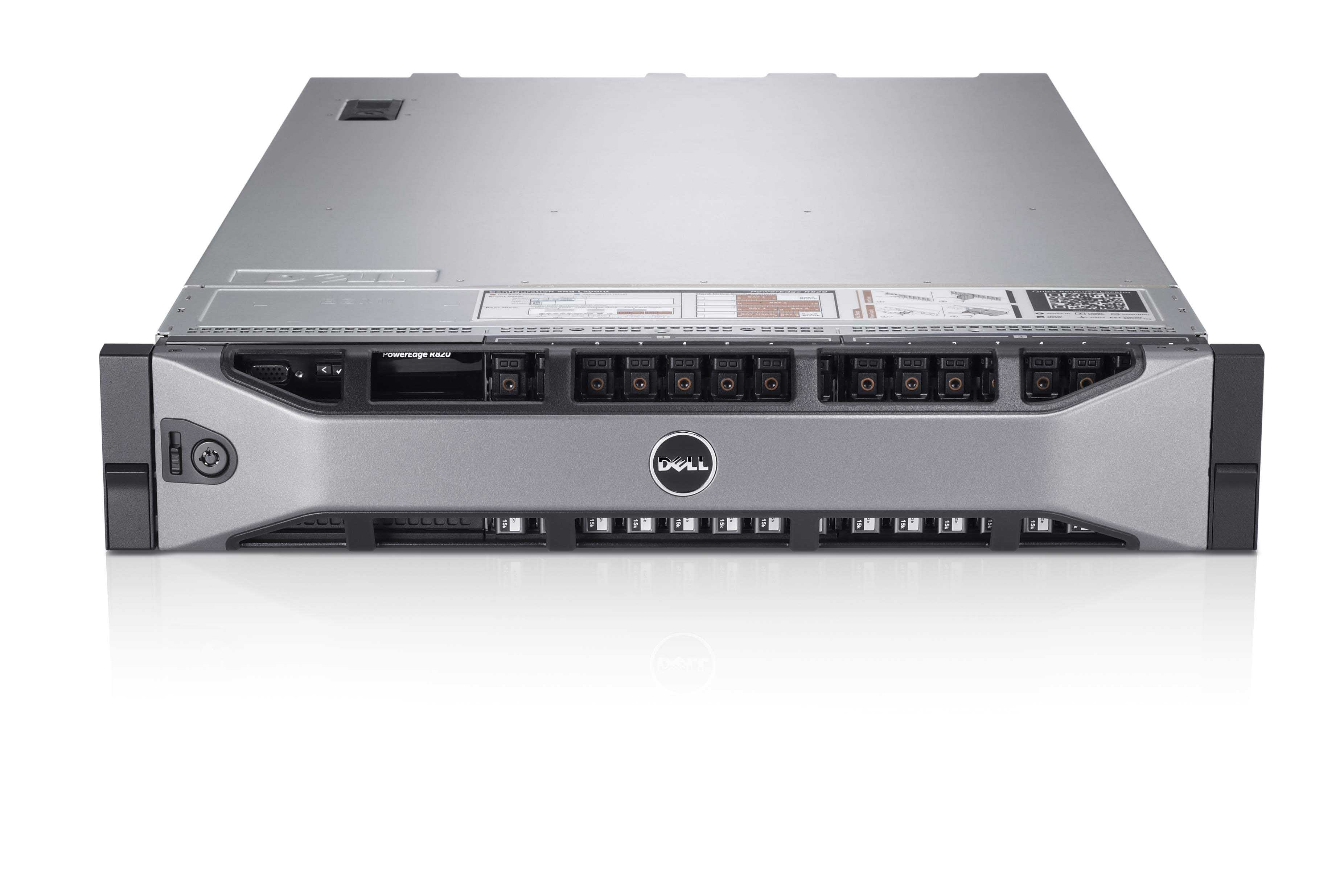
Dell PowerEdge R820
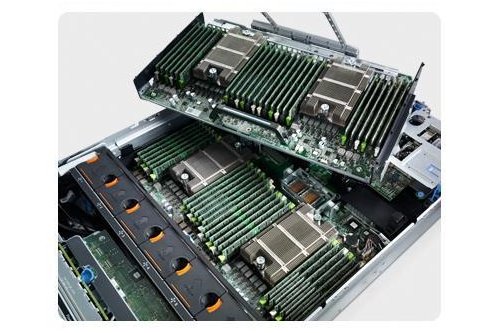
Dell PowerEdge R820
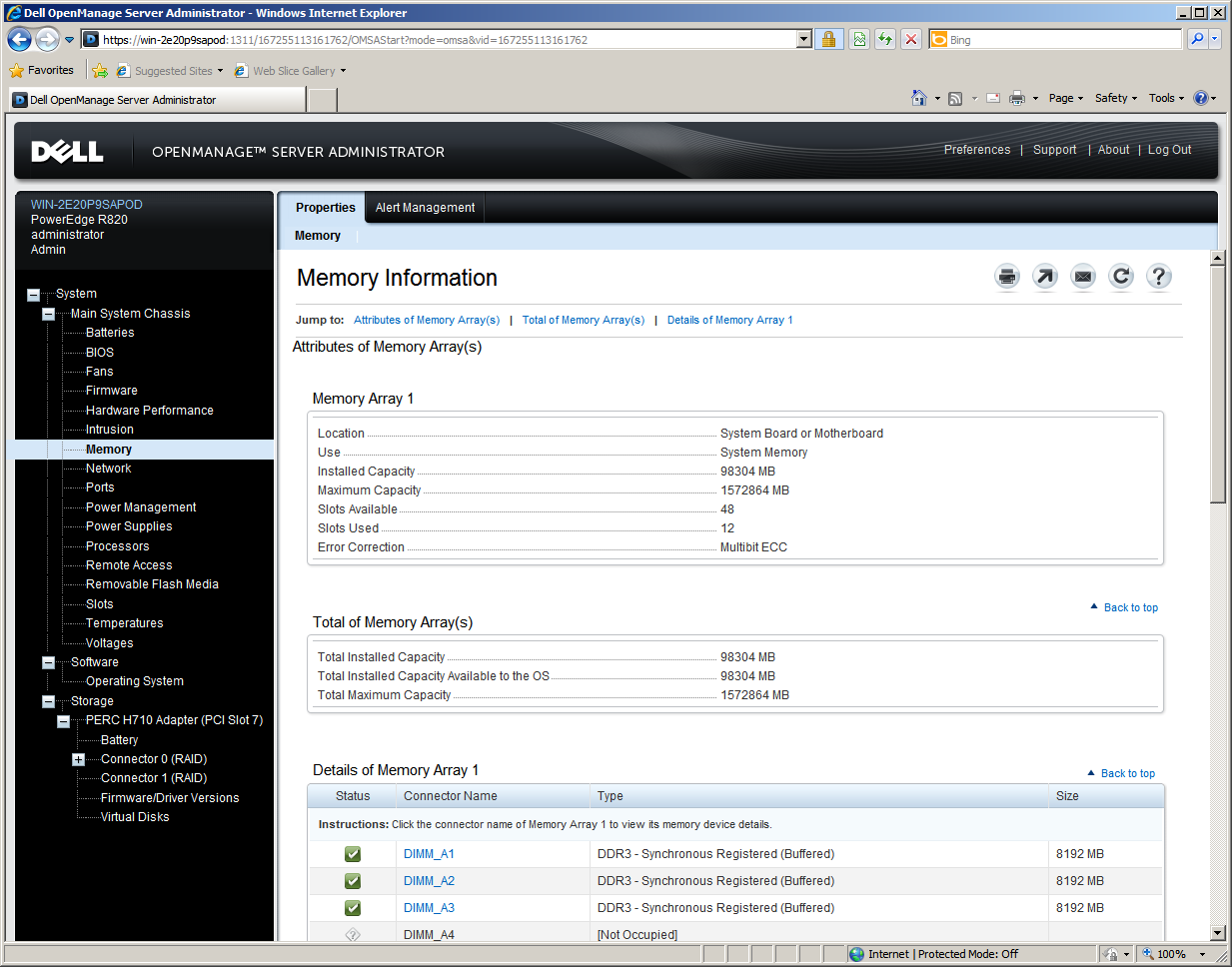
Dell PowerEdge R820
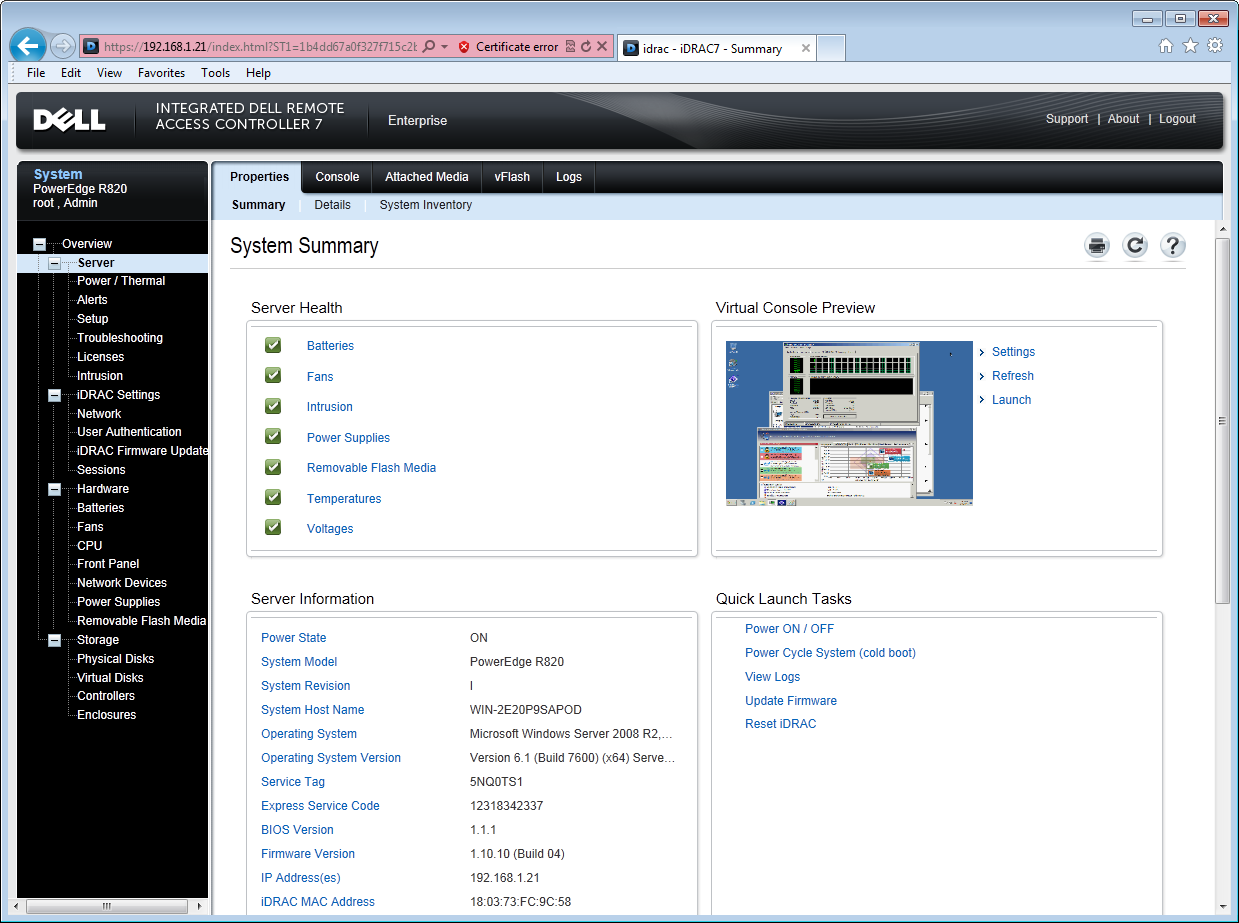
Dell PowerEdge R820
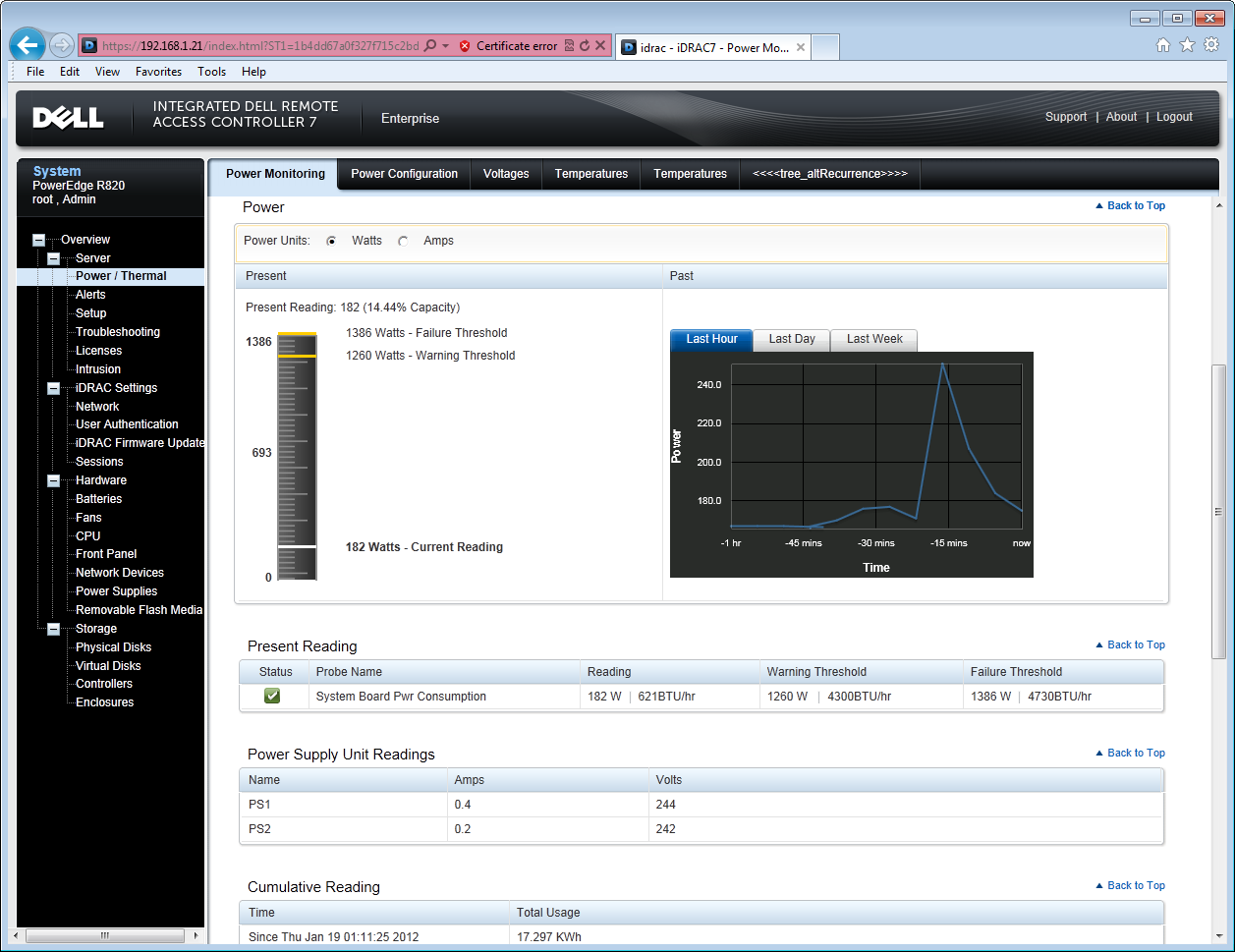
Dell PowerEdge R820
Dell consistently beats its rivals to market with new server technology, so it's no surprise the PowerEdge R820 sports Intel's latest Xeon E5-4600 processors.
When Intel launched its Xeon E5-2600 CPUs in March, their vital statistics were known well in advance, but not so with the E5-4600 family. This group consists of eight models ranging in speeds from 2GHz up to 2.9GHz with 4, 6 or 8 cores and 10MB, 12MB, 15MB, 16MB or 20MB L3 caches.
The R820 was equipped with a quartet of 6-core 2.2GHz E5-4607 Xeons which had a 12MB L3 cache, a 6.4GT/sec QPI and a low 95W TDP. These models support memory speeds up to 1066MHz and Intel's HyperThreading, but not Turbo Boost.
The E5-4600 family is designed for scalable dual and glue-less quad-socket platforms. As with the E5-2600s, they have two QPI links per socket supporting speeds up to 8GT/sec and in a 4P system will connect with adjacent sockets in a ring architecture.

In a 4P configuration the T820 uses a mezzanine card which sits on top of the main motherboard
Memory and storage aplenty
A key feature is memory capacity. The 4P system supports 48 DIMM sockets and can scale up to 1.5TB using 32GB LR-DIMMs. You may think this puts it in direct competition with the Xeon E7 but Intel has positioned the E5-4600 as a better choice where a balance of cost, performance, power consumption and memory capacity is required.
The R820 uses a similar chassis to the PowerEdge R720 and so has a good range of storage options. It supports 16 SFF hard disks and there's also an option with eight standard SSF bays and four hot-plug PCI-e Express Flash SSDs.
RAID options start with the basic PERC H310 entry-level adapter but review price includes the top dog PERC H710P PCI-e card which supports RAID-6 and has a 1GB NVRAM cache so doesn't need a battery backup. It uses an LSI chip and you can enable its optional CacheCade feature which optimises read activity from an SSD based cache.

Dell's new iDRAC7 management controller provides comprehensive power monitoring tools
Get the ITPro daily newsletter
Sign up today and you will receive a free copy of our Future Focus 2025 report - the leading guidance on AI, cybersecurity and other IT challenges as per 700+ senior executives
Dave is an IT consultant and freelance journalist specialising in hands-on reviews of computer networking products covering all market sectors from small businesses to enterprises. Founder of Binary Testing Ltd – the UK’s premier independent network testing laboratory - Dave has over 45 years of experience in the IT industry.
Dave has produced many thousands of in-depth business networking product reviews from his lab which have been reproduced globally. Writing for ITPro and its sister title, PC Pro, he covers all areas of business IT infrastructure, including servers, storage, network security, data protection, cloud, infrastructure and services.
-
 Westcon-Comstor and Vectra AI launch brace of new channel initiatives
Westcon-Comstor and Vectra AI launch brace of new channel initiativesNews Westcon-Comstor and Vectra AI have announced the launch of two new channel growth initiatives focused on the managed security service provider (MSSP) space and AWS Marketplace.
By Daniel Todd Published
-
 Third time lucky? Microsoft finally begins roll-out of controversial Recall feature
Third time lucky? Microsoft finally begins roll-out of controversial Recall featureNews The Windows Recall feature has been plagued by setbacks and backlash from security professionals
By Emma Woollacott Published
-
 The UK government wants quantum technology out of the lab and in the hands of enterprises
The UK government wants quantum technology out of the lab and in the hands of enterprisesNews The UK government has unveiled plans to invest £121 million in quantum computing projects in an effort to drive real-world applications and adoption rates.
By Emma Woollacott Published